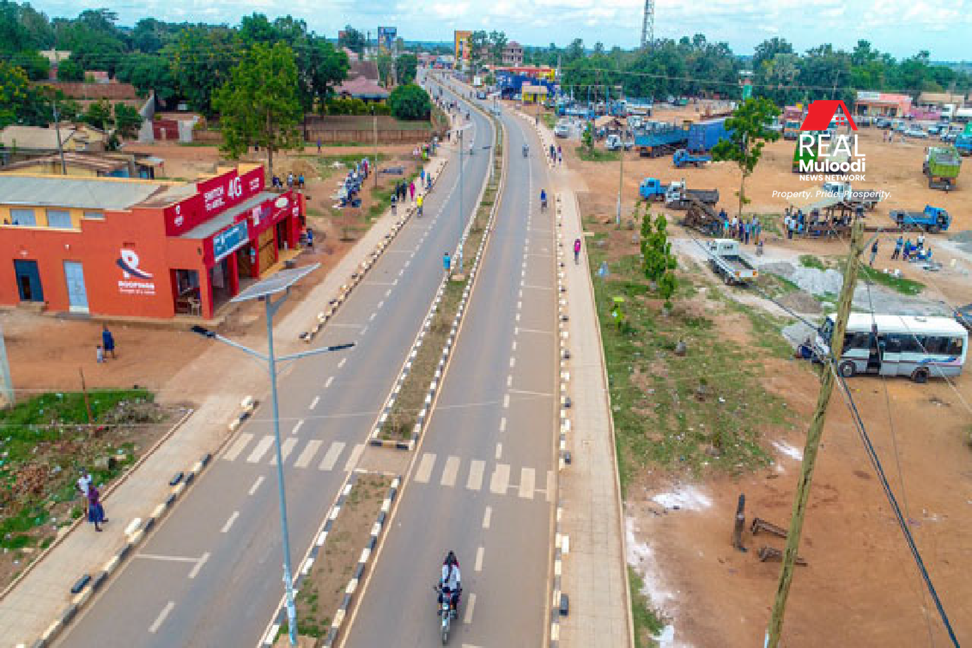UGANDA, Lira | Real Muloodi News | Lira City needs USh400 million to repair 141 broken solar street lights. They are among the 292 street lights installed during the Uganda Support to Municipal Infrastructure Development initiative (USMID). Several roads were also developed as a part of this World Bank-funded project.
The street lights which are not functioning are found mostly along Obote Avenue, Oyam Road, Soroti Road, and Aroma Lane. Most of them have trivial issues that are easy to solve, such as a bad connection or depleted batteries.
The city’s darkest corners have now given criminal groups an edge in committing vices like robbery and housebreaking, instilling terror among inhabitants.
Michael Ojok, a merchant in Lira City, is concerned that insecurity may rise as it did during the lockdown, particularly now that no military is patrolling the streets.
According to a bartender on Oyite Ojok Lane, she is losing clients to neighbouring pubs that do have sufficient street lighting. She is concerned that if this trend continues, her business may fail.
Francis Edyel, a boda boda operator, says they rarely make money at night because they are afraid of being robbed in dark spots where criminal groups carry out their operations.
The chairperson of Kitgum Boda Boda Association, George Ogwal Awango, argues that the city’s insecurity can only be eased if the local officials repair the damaged street lights.
The Lira city engineer, Freddie Owiny, confirms that a large number of street lights have surpassed their service life and are in need of maintenance and repair.
According to Owiny, USh68 million has been set aside from the Uganda Road Fund to repair the street lights. However, he says this only addresses a subset of the lights, and that they need over Sh400 million to fix all faulty street lights in the city.
Therefore, the Lira City Authority is attempting to bridge the revenue shortage by undertaking property valuations in the city, targeting commercial properties to be taxed over the next five years. Property rates (property tax) is an important contributor to local coffers, and the additional revenue generated should boost the ability of the Lira City Authority to properly maintain the city.
The property valuation exercise is currently underway, and aims to be complete within in the next 3 months so that Lira can begin generating revenues from the valuation exercise from June 1st this year.
Property rates are levied only on commercial properties. It is a tax on all immovable property or buildings that are commercially managed like schools, rented houses, rented shops, factories, hotels, universities and any part of which is used for the purpose of business, even if it is owner occupied.
However, the tax does not apply to owner occupied residential dwellings, or to vacant land.
USAID is supporting the Ministry of Local Government to conduct the comprehensive GIS enabled property valuations in Lira, as part of the Domestic Revenue Mobilisation for Development (DRM4D) Project.
Property valuations are also occurring in 9 other cities that were recently elevated from municipality to city status, being Mbale, Soroti, Hoima, Fort Portal, Arua, Jinja, Mbarara, Masaka, and Gulu, in accordance with the local Government Rating Act 2006.
The additional revenue from property rates will increase the cities’ ability to finance service delivery and infrastructure maintenance, such as street lights for the security and safety of their residents.
READ MORE LIKE THIS:
Caught in the Act: Lira District Land Board Secretary Arrested Smuggling Hundreds of Land Documents



